
Browse our fun-packed, helpful plant-based articles, and delve deeper into this healthy, sustainable lifestyle!




Plant-Based & Mindful Sipping: Balancing Alcohol and Weight Management
Plant-Based Lifestyle Tips For Women
Author: Plant-Based Susy
Can your nightly tipples really be tipping the scale? Don’t put your glass down just yet. At Vegan Susy, we have the best tips for balancing alcohol and weight management — plant-based and mindful sipping.
Balance alcohol and weight management through mindful sipping. Limit your alcohol intake to 1 to 2 drinks per night at most and be mindful of the calorie content. Consider drinking low-calorie, vegan alcoholic drinks and replacing sugary syrups, juices, and sodas with fresh fruits, herbs, and seltzers.
You don’t have to miss out on all the fun. You can still enjoy moderate drinking and keep your weight under control. Continue reading for the latest mindful drinking tips for maintaining weight on a plant-based diet.

Table of Contents:
Managing Weight with Alcohol on a Plant-Based Diet
You can manage your weight on a vegan diet while enjoying an occasional alcoholic beverage. Being mindful of how much you drink and the calorie content in your glass is key to managing weight with alcohol on a plant-based diet.
A healthy, plant-based diet is positively associated with weight loss and weight management compared to a standard omnivorous diet. However, incorporating mindful drinking in your plant-based lifestyle can boost shedding those last stubborn pounds.
The trick lies in moderate, mindful sipping and finding the perfect balance between alcohol and keeping your weight on track.

How Does Alcohol Affect Weight Loss?
Conventional wisdom has it that alcohol consumption is linked to weight gain. Here’s the science behind why it’s true:
Alcohol is High in “Empty” Calories
Alcoholic drinks are often labelled as “empty” calories, meaning that they offer little to zero nutritional value to your body.
We mostly consume drink calories in addition to the calories consumed in the rest of our diet ⎯ these calories simply aren’t accounted for. Alcohol accounts for approximately 10 to 16% of habitual drinkers’ total calorie intake, with very few people informed of these alcoholic calories.
Alcohol is jam-packed with calories. Alcohol packs about 7 calories per gram, ranking as the second most calorie-dense nutrient after fat (9 calories per gram). As a result, you could be consuming hundreds of calories in your drinks without even knowing it.
There are around 125 calories in a glass of wine and 155 or more calories in a can of beer. Enjoying several drinks a night can cause you to consume a few hundred unplanned calories before you know it. Mixed drinks and cocktails with sodas, sugars, and syrups contain even more calories.
Your Body Prioritises Metabolising Alcohol
As soon as alcohol trickles down your throat, it becomes your body’s top priority. Your body recognizes it as a toxin and puts a halt on other important processes like absorbing nutrients and metabolising fats and carbs.
Instead of using your fat reserves for energy, your body prioritises metabolising alcohol. As a result, your current fat reserves are left untouched, and the excess carbs in your body, unfortunately, also end up stored as fat.
Alcohol Makes You Eat More
Studies show that drinking alcohol can trick your brain into thinking you’re still hungry. Your appetite-suppressing hormones are turned off, and your neurons that deal with hunger are activated — does raiding the freezer after eating a whole burrito and bag of crisps sound familiar?
Moderate drinking tends to impact our judgement and willpower, causing us to make poor food choices in the heat of the moment. It’s already hard enough saying no to your favourite junk foods when sober; try doing it when intoxicated.
Alcoholic drinks also cause blood sugar dips, causing us to crave sugary, carb-dense and calorie-dense foods.

Alcohol Can Cause Extra Belly Fat
The “beer belly” isn’t a myth. Despite the name, the high calories in all types of alcohol can cause weight gain around your middle, including other areas throughout your body. Alcoholic drinks like beer, ales, and cocktails are high in simple sugars and calories that end up stored as extra fat.
Alcohol (even moderate amounts) also lowers your testosterone levels. This sex hormone plays a large role in metabolic processes and fat-burning abilities, among other important things, and yes ladies, this affects us too.
Chugging down too many beers or frequent night tipples affects your body’s ability to burn fat efficiently, especially when indulgences include the inevitable accompanying salted nuts, chips or chocolate.
What is Mindful Drinking?
Mindful drinking is finding the balance between living a healthier lifestyle without completely giving up your favourite drinks.
Being more aware of your drinking habits and making better choices about how much alcohol you consume can help you maintain your weight and overall health. It also helps minimise dreadful side effects like hangovers.
Benefits of Mindful Sipping
We are seldom aware of the number of calories veiled behind our favourite alcoholic drink. Being more aware of your choice of when and how much you drink is generally linked to consuming less alcohol.
Mindful drinking also focuses on being aware of the carbs, calories, and alcohol volume in the drinks you order.
Mindful sipping offers many health benefits, including:
Weight management
Improved health
Improved mood
Better sleep
Improved energy levels
Reduced risk of alcohol addiction
Is Mindful Drinking Allowed on a Plant-Based Diet?
You can enjoy mindful or moderate drinking on a plant-based diet. Opt for alcohol brands that are compatible with a plant-based lifestyle and avoid using animal products during production or for flavouring.
As a general estimate, we recommend limiting your alcoholic consumption to 1 to 2 drinks for women and men, respectively.
Mindful sipping can even be linked to potential benefits like:
Improved heart health
Reduced risk of kidney stones
Reduced risk of type 2 diabetes

Mindful Drinking Tips for Maintaining Weight on a Plant-Based Diet
If you’re set on dropping those last couple of pounds as quickly as possible, we recommend ditching alcoholic drinks altogether. However, if you still want to enjoy your evening glass of wine or weekend cocktail, follow these 10 simple steps.
Vegan Susy’s top 10 mindful drinking tips to help you manage your weight on a plant-based diet:
Moderation is key: Moderate, low-risk drinking is 7 or fewer drinks per week for the ladies or less than 14 drinks weekly for the gents.
Set limits: Setting a drink limit before a night out can help manage your alcohol intake. You can ask a reliable friend to keep you accountable.
Take a day off: Try to have at least two alcohol-free days each week.
Hydrate, hydrate, hydrate: Keep hydrated by alternating your alcoholic drinks with a glass of water or sparkling water. Both types are equally hydrating.
Keep your hand light: Drinking at home? Measure your shots rather than guesstimating those fluid ounces. A heavy hand can up your calorie intake drastically.
Say no to sugary drinks: Switch your sugary cocktails and calorie-dense beers with low-calorie options. Use fresh fruits and muddled herbs for added flavour and sweetness instead of using syrups, juices, and sodas. Your creativity is your only limitation ⎯ think fresh mint, a splash of lemon or lime, or grapefruit wheels.
Stick to simple drink recipes: The more shots of booze and sweet syrups you add to your drink, the higher your calorie intake.
Seltzers are calorie-free: Replace sugary mixers with sugar-free seltzers or low-calorie diet sodas and tonics. Adding a seltzer to your cocktail provides added fizz and volume without increasing your calorie intake.
Be more mindful of your drinking habits: Keep a journal of your drink consumption for several weeks. Tracking your alcohol consumption will make you more aware of your intake.
Skip drinking on an empty stomach: Eat a healthy, plant-based meal before a night out with friends. Or enjoy a small glass of red wine with a healthy plant-based meal, while you stay aligned with your weight loss goals.
Bonus Tip: Treat yourself; you don't always fancy a cocktail when you can satisfy your thirst and tastebuds with a delicious mocktail, like this Sugar-Free Super Refreshing Watermelon Lemonade.
Best Plant-Based Alcoholic Drinks for Weight Management
Prioritise low-calorie, plant-based alcoholic drinks if you’re trying to manage your weight. We recommend saying no to drinks mixed with simple sugars and syrups.
In most cases, your spirits (vodka, rum, gin, whiskey) and mixers contain the least calories. Try reaching for something like a vodka and club soda, rum and diet soda, or whiskey on the rocks. You can even spruce them up with herb and fruit garnishes without doing too much damage to their calorie score.
However, you also get tasty, low-calorie beer and wines that are vegan and diet-friendly.
Moderation is key — it’s important to also pay attention to the quantity of drinks you consume. Just because these drinks are vegan low-calorie options doesn’t make them calorie-free.
Cheat Sheet to Calories in Vegan Alcoholic Drinks
The calorie content of your favourite drink depends on your drink of choice, the type of alcohol, and whether you add sugars or syrups. However, understanding the estimated calorie content in alcoholic drinks can help you balance your alcohol and weight management.
Here’s Vegan Susy’s go-to list when trying to estimate the number of calories in a drink. It comprises the most common plant-based alcoholic wines, beer, and spirits.
For reference, a standard, single serving of alcohol equals:
Wine: 5 ounces (145 ml)
Beer: 12 ounces (335 ml)
Sprits or liquor: 1.5 ounces (45 ml)
Wines
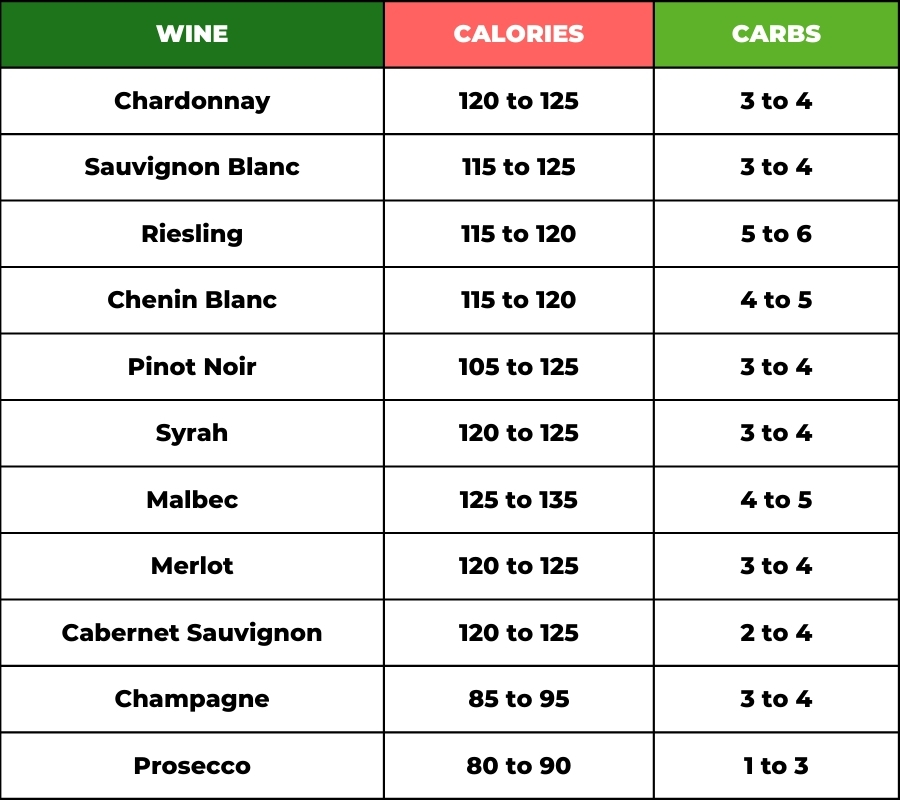
Beers & Ciders
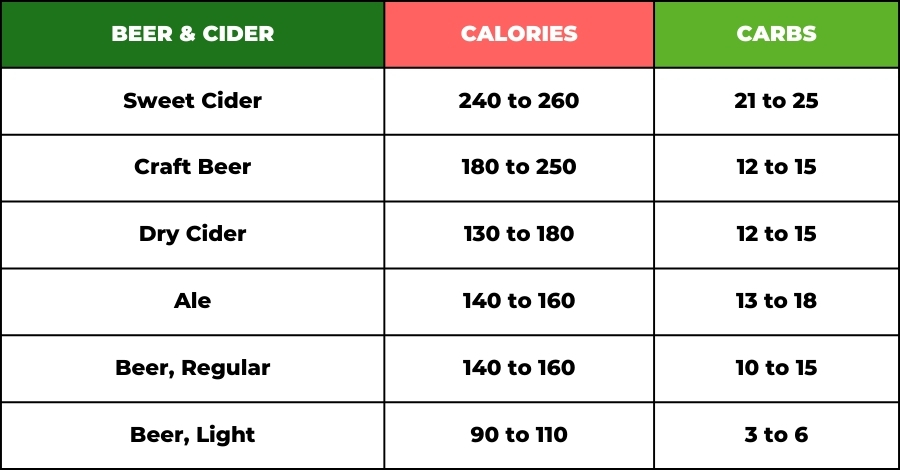
Spirits
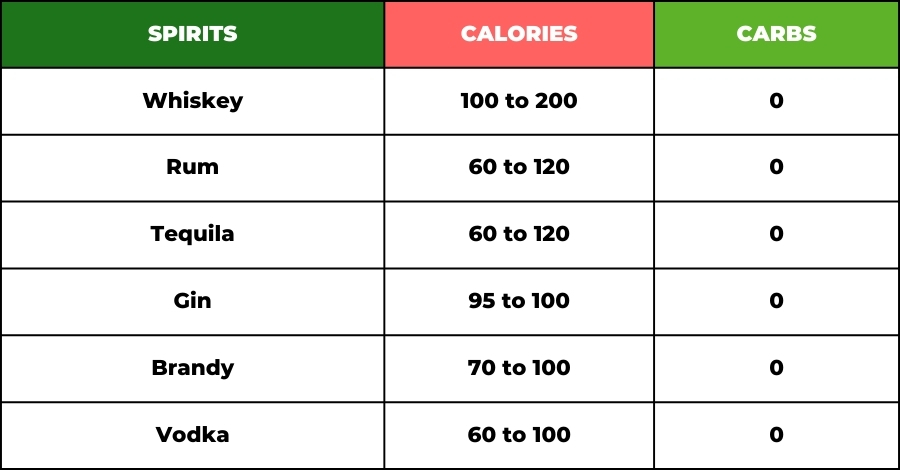
Vegan Susy’s Top 5 Low-Calorie Alcoholic Drinks
Keep your weight management on track while enjoying a night out: Here are Vegan Susy’s 5 go-to low-calorie, plant-based alcoholic drinks.
Vodka Soda: Top up a shot of your favourite vodka with club soda or sparkling water. Add a squeeze of fresh citrus to spruce up your drink.
Martini Dry: Enjoy a low-calorie chic drink made with gin and vermouth. Garnish your dry martini with an olive or lemon rind.
Negroni: The classic three-ingredient negroni ⎯ gin, vermouth, and Campari ⎯ totals up to a low 95 calories. Yes, Campari is now vegan; it no longer contains carmine.
Tequila: You can sip tequila straight with the classic salt and lime combo. And if “shots” aren’t your scene, add some mint and club soda.
Prosecco: Add bubbles to your special dinners or nights out. Prosecco and champagne don’t need to be dollied up (although they do go well with strawberries) and they contain between 80 and 90 calories. Not too shabby.
Frequently Asked Questions
Can I drink alcohol and manage my weight?
You can manage your weight and still drink alcohol. Be mindful of the type and quantity of the drinks you consume. Low-calorie, low-sugar drinks are the best choice for managing your weight.
What are the best plant-based alcoholic drinks for weight management?
The best plant-based alcoholic drinks for weight management are spirits with low-calorie mixers. You can also consider vegan-friendly red wines and light beers.
What are the best plant-based alcoholic drinks for weight management?
The best plant-based alcoholic drinks for weight management are spirits with low-calorie mixers. You can also consider vegan-friendly red wines and light beers.
What are the best plant-based alcoholic drinks?
Opt for dry wines, light beers, and spirits with fresh fruits, herbs, or seltzer instead of sugary mixers.
How does alcohol cause weight gain?
Alcohol slows fat metabolism, adds empty calories, and triggers hunger cravings, leading to overeating.
Conclusion:
The calorie count of alcoholic drinks might have been a real wake call – they were to us!
However, you can still enjoy mindful drinking on your plant-based diet. Balancing alcohol and weight management is as simple as consciously choosing low-calorie options and sticking to 1 to 2 drinks max per day. That's one for the ladies!

💚 "Happy Plant-Based Eating & Exercising!" 💚

Plant-Based Susy
Plant-Based Nutrition Professional & Weight Loss Coach
Empower Yourself: Embark on a Delicious Fat Loss Adventure



🍉 Get Ready to Jump Start Your Fitness Goals AND DISCOVER A HEALTHIER YOU!
🍉 Let's Make Your Fat Loss & Optimum Health Journey a Delicious Success Story!
🍉 Get The FREE Sustainable Weight Loss Companion eBook and CHEAT SHEETS!
More Free Resources
Unlock Your Transformation Today!
© 2025 VeganSusy Ltd. All Rights Reserved


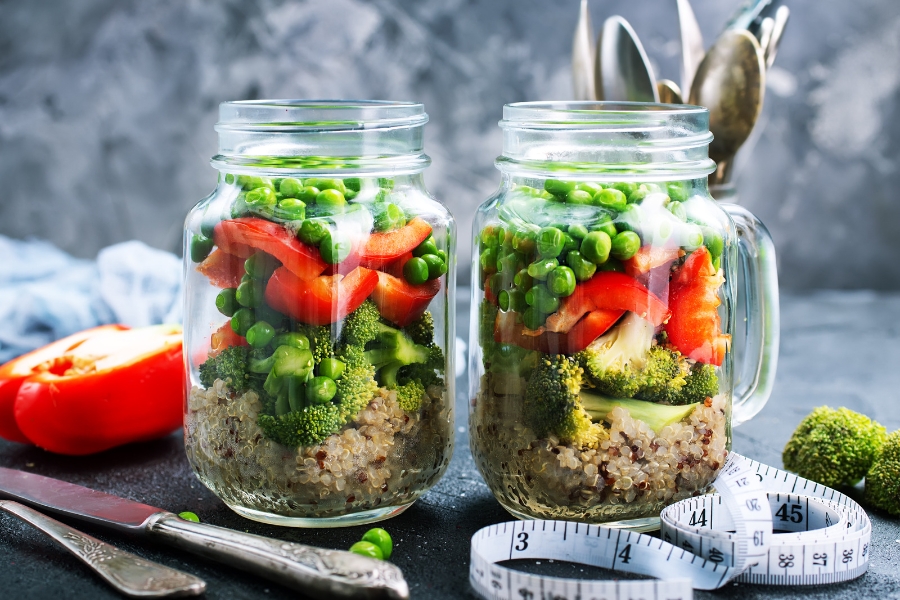
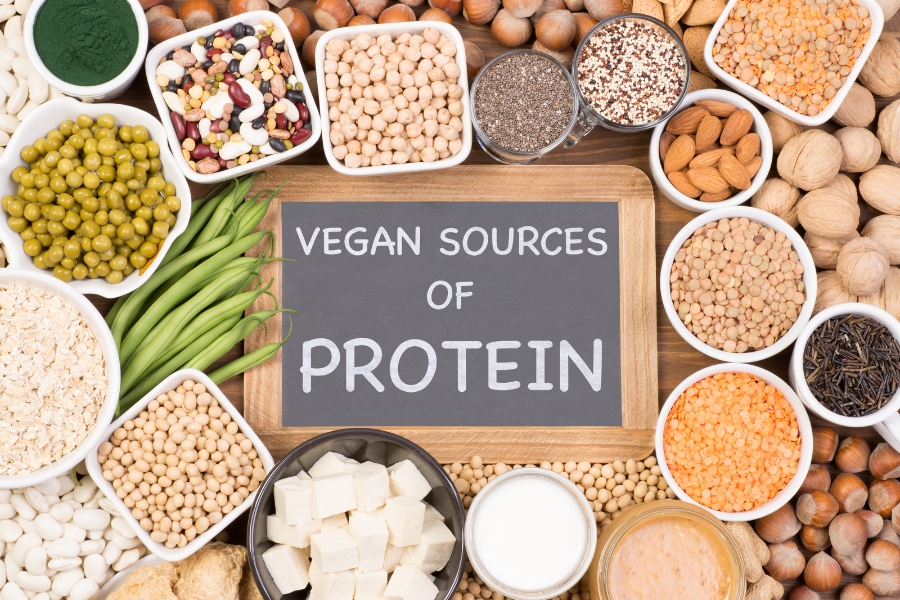







Facebook
Instagram
Youtube
Pinterest